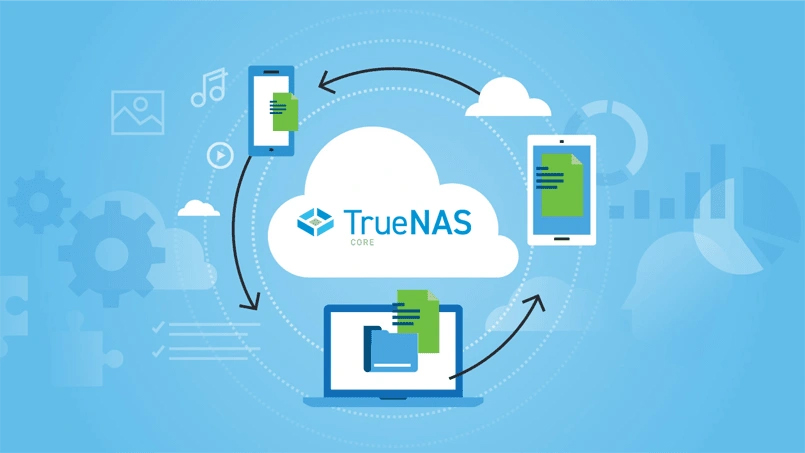Navigating the Skies of Advanced Storage Security: Key Storage Protocols and Standards Aerospace Companies Should Be Aware Of
In the dynamic realm of advanced aerospace and engineering technology, safeguarding sensitive data is paramount. Whether designing cutting-edge aircraft or developing revolutionary space exploration technologies, robust advanced storage security protocols are critical. In this guide, we'll explore the importance of choosing storage solutions that meet stringent security standards for aerospace and advanced engineering companies. Additionally, we'll delve into key storage protocols and top technology providers meeting these standards.
The Importance of Stringent Advanced Storage Security Standards for Aerospace and Advanced Engineering Companies

Aerospace and advanced engineering companies operate in highly competitive and regulated environments, where innovation and intellectual property are prized assets. Here's why choosing a storage solution that meets stringent security standards is crucial:
- Protection of Intellectual Property: Aerospace and advanced engineering companies invest significant resources in research and development to drive innovation. Intellectual property, including proprietary designs, patents, and trade secrets, must be safeguarded against theft, espionage, or unauthorised access. Choosing a storage solution with robust encryption and access controls ensures that sensitive intellectual property remains confidential and secure.
- Regulatory Compliance: Aerospace and advanced engineering industries are subject to strict regulatory requirements, especially when dealing with government contracts or international partnerships. Compliance with industry standards such as FIPS 140-2 and NIST SP 800-171 is essential to meet regulatory obligations and maintain the trust of customers and stakeholders. Selecting a storage solution that adheres to these standards demonstrates a commitment to security and regulatory compliance.
- Mitigation of Cyber Threats: The aerospace and advanced engineering sectors are prime targets for cyberattacks due to the high value of their intellectual property and the potential impact of security breaches. Cyber threats, including ransomware, data breaches, and industrial espionage, pose significant risks to companies' operations, reputation, and financial stability. By deploying storage solutions with advanced security features such as encryption, intrusion detection, and threat monitoring, companies can mitigate the risk of cyber threats and protect their critical assets.
- Preservation of Data Integrity: Data integrity is paramount in aerospace and advanced engineering applications, where accuracy and reliability are essential. Storage solutions that ensure data integrity through mechanisms such as cryptographic checksums and data validation safeguards against unauthorised modifications or tampering. Maintaining data integrity is critical for engineering simulations, testing, and analysis, where the accuracy of results directly impacts product performance and safety.
- Business Continuity and Resilience: Aerospace and advanced engineering companies rely heavily on data for decision-making, project management, and collaboration. Any disruption to data availability or loss of critical information can have severe consequences for project timelines, productivity, and profitability. Choosing storage solutions with built-in redundancy, disaster recovery capabilities, and data replication ensures business continuity and resilience, even in the face of unforeseen events such as hardware failures, natural disasters, or cyber incidents.
- Safeguarding Mission-Critical Operations: Imagine the stakes of a satellite launch or a critical flight operation. Protecting advanced storage ensures that mission-critical operations run without interruption. For example, backing up and protecting sensitive flight data is essential for maintaining safety and operational efficiency in the aerospace industry.
Understanding Key Storage Protocols and Standards
Now, let's delve into the key advanced storage security protocols and standards that aerospace and advanced engineering companies should consider:
- AES (Advanced Encryption Standard): AES is a benchmark in encryption, offering robust protection. Aerospace and advanced engineering companies can employ AES to encrypt data stored in various mediums, ensuring security against brute-force attacks.
- TLS (Transport Layer Security): TLS secures communication channels, mitigating risks of interception and tampering. Implementing TLS is crucial for aerospace and advanced engineering companies transmitting data across networks.
- FIPS 140-2 (Federal Information Processing Standards): FIPS 140-2 ensures cryptographic modules meet stringent security standards. Aerospace and advanced engineering companies must adhere to FIPS 140-2-certified solutions for cryptographic operations, safeguarding classified data.
- PKI (Public Key Infrastructure): PKI facilitates secure authentication and data exchange, enhancing access control and data protection across aerospace and engineering infrastructure.
- NIST SP 800-171: Compliance with NIST SP 800-171 is essential for aerospace and advanced engineering companies handling controlled unclassified information (CUI), ensuring data confidentiality and integrity.
- Blockchain Technology: Blockchain provides decentralised data storage and verification, suitable for aerospace and engineering applications requiring immutable records and enhanced data integrity.
- FIPS 197 (Advanced Encryption Standard - Rijndael): FIPS 197 defines the AES algorithm, ensuring interoperability and standardised cryptographic techniques for enhanced security.
Top Technology Storage Providers Meeting Advanced Security Standards

With an understanding of the importance of stringent security standards and key storage protocols, aerospace and advanced engineering companies can now explore top technology providers offering solutions that meet these standards. Let's delve into some reputable providers:
- IBM: IBM's Spectrum Storage suite offers encryption capabilities and robust access controls, meeting FIPS 140-2 compliance requirements.
- IXSystems: IXSystems, renowned for its TrueNAS storage solutions, provides secure storage tailored for aerospace and advanced engineering needs. TrueNAS meets stringent security standards, including FIPS 140-2 compliance, ensuring data protection and regulatory compliance for critical engineering projects.
- Hewlett Packard Enterprise (HPE): HPE's Nimble Storage platform delivers high performance and data protection features, including FIPS 140-2 validated encryption, ensuring security for aerospace and advanced engineering data.
- NetApp: NetApp's storage solutions offer encryption at rest and in transit, meeting advanced security needs. Their ONTAP software supports FIPS 140-2 compliant encryption for effective data protection.
By partnering with these reputable technology storage providers, aerospace and advanced engineering companies can access cutting-edge solutions that meet advanced security standards, ensuring the protection, integrity, and availability of their critical data assets. In an era of rapid technological advancement and evolving cyber threats, investing in robust storage security is not just a choice but a strategic imperative for success and resilience in aerospace and advanced engineering industries.

